Mozambique: Election of PODEMOS secretary-general annulled - AIM | Watch
Watch: Dhlakama says Renamo’s demand to appoint governors not a priority

TVM (File photo)
Renamo leader Afonso Dhlakama said today that the demand of the main opposition party in Mozambique to appoint provincial governors is no longer a priority, defending the election of these leaders in the general elections of 2019.
“It is not discarded, it is no longer a priority, I can not say it is discarded, or it is forgotten, because it would disturb the heads of the members and sympathizers and even of the people,” said Afonso Dhlakama, Speaking from the central district of Gorongosa, where he has been a refugee since 2015.
Renamo’s demand to govern in the six provinces where the party claims victory in the general elections of 2014 and the consequent refusal of the government of the Mozambican Liberation Front (Frelimo) was the main reason for the country’s return to armed conflict, opposing the two parties.
Afonso Dhlakama today extended the indefinite truce in the military conflict with the Government, as a result of the contacts he has been holding with the Mozambican President, Filipe Nyusi.
Speaking on a teleconference attended by journalists at the Maputo headquarters of the Mozambican National Resistance (Renamo), Afonso Dhlakama suggested that the party’s demand to rule in the six provinces where it claims victory in the 2014 general elections is unfeasible, expressing an option for a legislative change that imposes the election of governors in the general elections of 2019.
“[For the 2019 elections], it is almost two years away, the priority now is for us to have governors elected in Mozambique,” said Afonso Dhlakama.
Populations, he continued, must be governed by elected officials, because it is undemocratic that a province be run by a governor appointed by the head of state of another party.
“It is outdated that political parties compete, win elections in the provinces and that there is another party which lost in those provinces and sends someone as if he /she were a commander to impose, this is undemocratic,” he emphasised.
In this perspective, the working group formed by the Government and Renamo to propose a law on decentralisation will draft a law on the election of provincial governors in the 2019 ballot.
“As for the decentralisation chapter, it’s very complicated, it’s very complex, it’s very slow, but we’re trying to get things moving,” the Renamo leader said.
The group that discusses military affairs, he continued, will have to submit by the end of this year a proposal on the integration model of Renamo armed men in the Defence and Security Forces.
“I am motivated, I know that things will change, they will not be as they have always been since 1992, there is a huge effort that we are trying to make, there is no secret whatsoever,” added Afonso Dhlakama.
The Renamo leader said the extension of the suspension of the confrontations with the Mozambican Defence and Security Forces (FDS) results from the telephone conversations he has been holding with Mozambican head of state, Filipe Nyusi.
“I was always saying that if everything went well, if the Government, the President of the Republic, my brother [Filipe] Nyusi, corresponded, I could give the truce without a deadline,” stressed the president of the main opposition party.
Mozambican Defence and Security Forces and the armed wing of the main opposition party were engaged in clashes in the centre and north of the country in 2016 until the first truce announced by Dhlakama in December.
The war has killed an unknown number of people, with attacks on buses, trains and other civilian targets, sank the economy and sparked a refugee crisis.
Renamo and Frelimo, the ruling party, exchanged mutual accusations of political persecution and assassination.
The clashes erupted after Renamo refused to accept the results of the 2014 general election, demanding to rule in six provinces where it claims victory in the ballot.
It is in this sequence that the decentralisation of the State is now at the negotiating table between Dhlakama and President Nyusi – along with the depoliticisation of the FDS and the disarmament of the armed wing of the opposition and their reintegration into civilian life or integration into the army, police and information services of State.


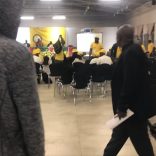

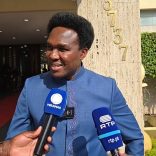
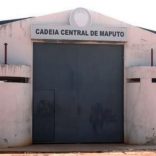
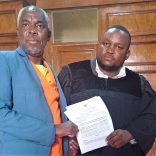
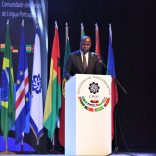





Leave a Reply
Be the First to Comment!
You must be logged in to post a comment.
You must be logged in to post a comment.